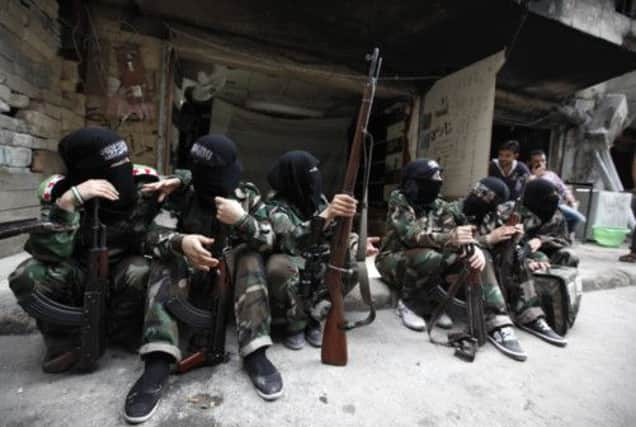Forgotten victims of Syria stalemate


Once prosperous suburbs lie in ruins as rebels and regime forces battle for control; young women who once aspired to a college education now learn how to wage guerrilla war.
Yet one group of residents are suffering out of sight: the inmates of the besieged prison.
Advertisement
Hide AdAdvertisement
Hide AdThey are crammed into small, dark rooms with no water or electricity and barely enough food to survive. Diseases such as tuberculosis and scabies are rampant. Every so often, the crash of artillery shells rocks the prison complex, as the war staggers on.
Rebels have been laying siege to it for five months, determined to free the more than 4,000 inmates. Fighters have barrelled suicide car bombs into the front gates twice, lobbed shells into the compound and battled with the hundreds of guards and troops holed up inside. Still, they’ve been unable to capture it. Meanwhile, more than 150 prisoners have died, killed by shelling, dying from lack of medicine or executed by guards, opposition groups say.
The siege is emblematic of the bloody, cruel war of attrition into which Syria’s conflict has descended during its third year. In the north, including Aleppo province, rebels have seized swathes of countryside. But they have been unable to take urban centres. President Bashar al-Assad’s forces have been able to hold onto bases and other strongholds, from which they can bombard rebel-held communities – but they can’t take back territory.
The relentless carnage nationwide has left more than 100,000 dead and driven millions of people from their homes.
The prison lies on a road about four miles north of Aleppo city, which is split between the opposing sides. The rebels launched their assault on the prison in April to free those inside, and uproot a regime pocket amid neighbourhoods largely held by opposition forces.
The prison’s 4,600 inmates, including 150 women, are a mix of common criminals, rebels, activists and opposition supporters, according to the London-based Syrian Network for Human Rights. Around 1,300 of the inmates have completed their sentences but remain behind bars.
Diseases have spread in the jail, including more than 200 cases of TB, of which seven have died, according to the SNHR. It said vomiting, diarrhoea and poisoning are common there because water tanks have not been cleaned for months. “The life of detainees in that prison is dismal,” said Aleppo activist Mohammad Saeed. “The guards give very little food to prisoners and sell them medicine for as much as $10 (£6.40) for a painkiller pill,” he said via Skype.
Since they began their siege, rebels have launched several assaults trying to overrun the prison. In May, fighters broke in after setting off two car bombs at its gates. They battled troops within the walls until the regime forces, backed by warplanes, drove them out. In August, rebels set off another car bomb near the prison, but failed to breach the walls.
Advertisement
Hide AdAdvertisement
Hide AdOtherwise, the rebels surrounding the prison periodically blast it with rockets or mortars.
The commander of one of the groups laying siege said they are careful to spare civilians from shelling. “We know where the detainees are and where the regime soldiers are,” said Abu Thabet, commander of Aleppo Swords Battalion.
He said some inmates have mobile phones and communicate with the rebels outside.
Still, several times, the UK-based Syrian Observatory for Human Rights, another activists group, has reported inmates killed by the incoming shells.
Abu Thabet claims the prison is surrounded, but regime officials say they have been able to keep their troops inside resupplied with helicopter drops.
Food shortages have been alleviated after the rebels began to allow the Red Cross and Red Crescent to deliver food two or three times a week. But only pre-cooked food is allowed, as rebels fear regime forces inside might stockpile it to prolong the siege.